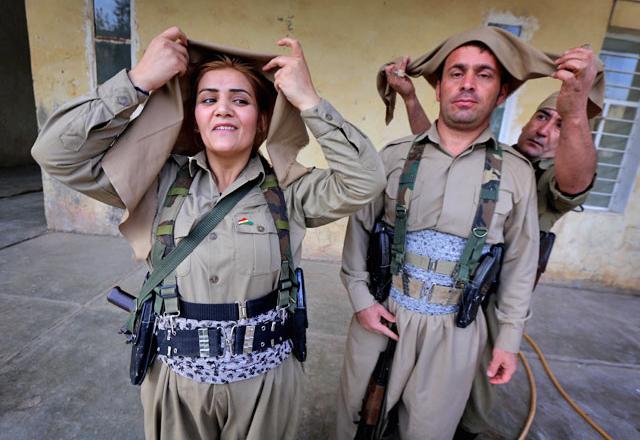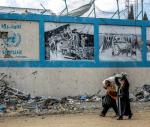You are here
More than 700 Iraqi Kurd fighters killed since June IS offensive
By AFP - Dec 10,2014 - Last updated at Dec 10,2014

SULAIMANIYAH, Iraq — Six months into the jihadist offensive in Iraq, the autonomous Kurds said Wednesday they had lost more than 700 fighters and argued the burden of hosting a million displaced civilians was becoming unsustainable.
Since the Islamic State group launched a devastating offensive from Syria on June 9, Iraq's Kurds have been involved in battles along a frontline stretching more than 1,000 kilometres.
A statement from the region's military forces, known as the peshmerga, said 727 members of the Kurdish security forces had been killed and 3,564 wounded since June 10.
The dead and wounded included "officers, non-commissioned officers, members of the Asayish [intelligence agency], of the police and some peshmerga veterans," it said.
The peshmerga ministry said 34 members of the Kurdish security forces are also still reported as missing.
The last overall toll released by an official Kurdish source was on August 8, when the regional presidency's chief of staff Fuad Hussein said 150 peshmerga had been killed.
Wednesday's figures do not include casualties sustained in Iraq by Kurdish fighters from armed groups based in Turkey, Syria and Iran who have joined the anti-IS war effort.
Jabbar Yawar, the peshmerga ministry's secretary general, told AFP that only 11 of the Iraqi Kurds who had joined the battle against IS fighters in the Syrian border town of Kobani had been wounded and none killed.
When the jihadists, who already controlled swathes of neighbouring Syria, attacked six months ago, the Iraqi federal forces collapsed, commanders and foot soldiers alike often abandoning their posts without a fight.
The peshmerga moved in to the vacuum and took over several disputed areas they had long claimed from the federal state, de facto expanding the size of their region by around 40 per cent.
However, they were forced out of several of their newly acquired territories when IS fighters — who had made Iraq's second city of Mosul their main hub — launched a second offensive in August.
Financial strain
The fresh advance brought IS to within striking distance of the Kurdish capital of Erbil, which was one of the justifications put forward by US President Barack Obama when he ordered air strikes four months ago.
Several other nations — including Britain, France and Australia — have since joined the air campaign and the peshmerga have also received foreign assistance in the shape of weapons, military advisers and training.
"Peshmerga forces have succeeded in pushing IS away from several Kurdistan regions and in transitioning from a defensive to an offensive phase," Wednesday's statement said.
The peshmerga have suffered heavy losses in and around Jalawla, a town near the Iranian border which has changed hands several times.
They were also involved in the fierce battle to retake the Mosul Dam, Iraq's largest, and more recently in almost daily fighting south of the city of Kirkuk.
The casualty figures released Wednesday are dwarfed however by the losses suffered by the federal security forces, which are believed to have lost thousands of men since June.
Violence in Iraq has displaced more than two million people this year, nearly half of whom have fled to the relative safety of the Kurdish region.
A statement released Wednesday by the United Nations and Kurdistan government said that 946,266 displaced Iraqis had found refuge in Kurdistan in 2014.
"The hosting of IDPs [internally displaced persons] in the Kurdistan region of Iraq is placing a huge burden both on the region's social services.. [and] financial resources, which is becoming unsustainable," Kurdish Planning Minister Ali Sindi said.
A dispute with Baghdad over budget allocations and oil exports, which now looks set to be resolved but has lasted a year, has drained Erbil's coffers and the region is experiencing a bruising financial crunch.
Related Articles
Kurdish peshmerga fighters have secured a route to Iraq's Sinjar mountain, where hundreds of people had been trapped by the Islamic State (IS) fighters, Masrour Barzani, head of the Iraqi Kurdish region's national security council said on Thursday.
ERBIL, Iraq — Kurdish militants opposed to Turkey killed a member of the Kurdish peshmerga units in northern Iraq on Wednesday, officials sa
ERBIL, Iraq — Kurdish forces backed by US-led coalition air strikes drove Daesh militants out of 10 villages in Iraq's Kirkuk province on We
















